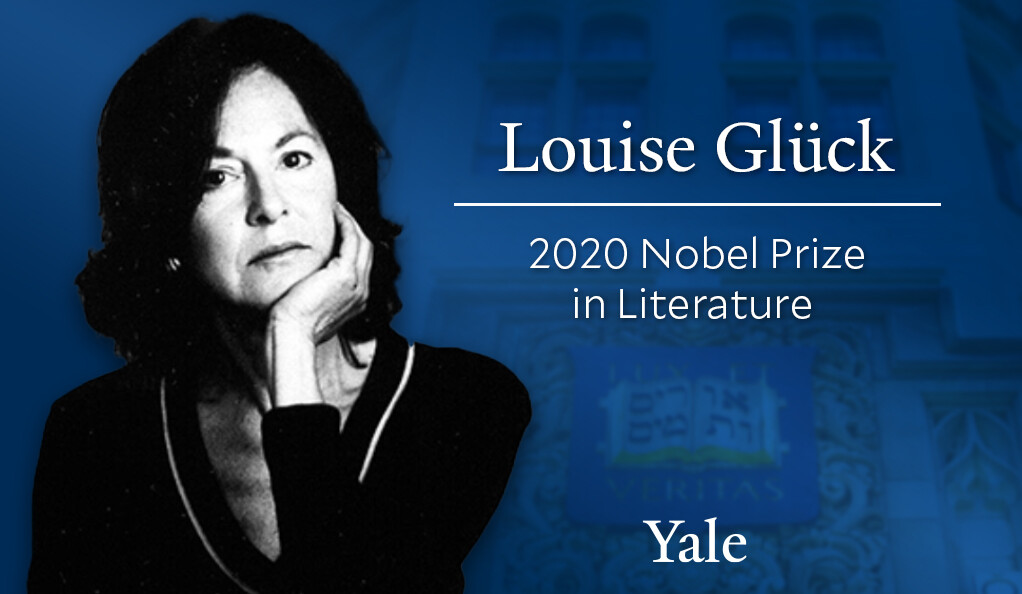
Yale News
On Oct. 8, Louise Glück, Rosenkranz writer-in-residence at Yale and adjunct English professor, was awarded the Nobel Prize in Literature.
The Norwegian Nobel Committee described Glück’s poetic voice as both “unmistakable” and “austere.” Following the announcement, Glück’s colleagues at the English Department and in the administration were quick to honor Glück for her excellent work.
“Yale celebrates a poet of the interior life, whose unsparing explorations of the self and its place in the world in volume after volume have created poems of beauty and revelation,” President Peter Salovey said in a Yale News statement. “We also honor a galvanizing teacher, who has given herself unstintingly to students who revere her.”
Glück has published 12 poetry collections and multiple essay volumes, for which she has received several honors in the past. These include the Yale Bollingen Prize for Poetry, the 2014 National Book Award, the 2015 Gold Medal of Poetry from the American Academy of Arts and Letters and the 2016 National Humanities Medal. In 2003, Glück was the first U.S. Poet Laureate.
In a Thursday morning email to the Faculty of Arts and Sciences, Tamar Gendler, dean of the Faculty of Arts and Sciences, echoed Salovey’s sentiments about Glück. She expressed her excitement and gratitude towards Glück, who she described as a brilliant poet and incredible teacher. Gendler also shared one of Glück’s poems, titled “October,” and encouraged faculty to “revel” in its words.
Stefanie Markovits, director of undergraduate studies for the English Department, spoke directly to Glück’s skill as a teacher. In an email to the News, Markovits mentioned how Glück’s office was always filled with students, some of whom would spill into the hallway outside. Markovits recalled that Glück would not leave until she helped every single one of them.
Elisa Gonzalez ’11, now a New Yorker published poet, was a student of Glück’s “Introduction to Poetry” workshop during the fall of her first year. She remembers Glück as a “brilliant” and “sometimes oracular” teacher who was as generous with praise as she was with criticism.
“I can honestly and unreservedly say that Louise has transformed my life, and any path I have followed as a writer would not have happened without her early teaching and encouragement,” Gonzalez said. “I’ve never learned as much from anyone as I have from her. I still learn from her whenever I return to her work.”
Lucy Teitler ’05, now a playwright and screenplay writer, noted that Glück’s work came from a place of effortless, near-cosmic clarity. According to Teitler, that was exactly how Glück approached her students. During the months Teitler and her classmates spent in Glück’s classroom, Teitler said they felt like real poets.
To Glück’s other Yale colleagues, her Nobel Prize comes as no surprise. Richard Deming, director of the creative writing department, said Glück holds a central presence in the Yale community. He said Glück worked with many student poets, providing them with both feedback and guidance.
“Her sense of community has touched us, and will continue to touch us, inspire us and challenge us to take the writing life as seriously as we must,” Deming said. “There is no one more deserving of this most dizzying of awards.”
English professor Margaret Spillane knew Glück was destined for success when she first read her poetry in a literary magazine, back in the 1970s. Immediately after, Spillane bought one of Glück’s books titled “The House on Marshland.” She has been keeping up with Glück’s work ever since.
Glück herself has mixed feelings about what the award represents for her. In a phone interview with Nobel Media, she said that she was unsure of the award’s personal meaning — but that winning the prize was nonetheless a great honor.
“Mostly, I am concerned for the preservation of daily life, with people I love,” Gluck said. “The phone is ringing now, squeaking into my ear.”
In the fall of 2019, Glück taught the undergraduate English courses “Introduction to Writing Poetry” and “Advanced Poetry Writing.”
Madison Hahamy | madison.hahamy@yale.edu
Razel Suansing | razel.suansing@yale.edu
Bryan Ventura | bryan.ventura@yale.edu







